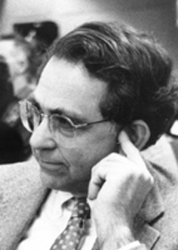|

The New Media and the Old Regime
Saturday, May 9, 1998
9:00-10:30 am
Speaker: Paul Starr
Respondent: Yaron Ezrahi
Moderator: Karen Sollins
[These are edited summaries, not complete transcripts.]
Paul Starr: When a new medium hits an "old regime," what follows depends upon both the medium and the regime's technical and political decisions.
My objective is not to reject the prevailing optimism about the
decentralizing and democratizing effects of the new media. But there is
ample reason to hold a more discriminating and skeptical view of the
political implications of the information revolution.
My discussion examines the potential significance of the new media for
three related spheres: politics, government services, and public policy.
There is little reason to expect the new media to lead to more democratic
politics. Participation in 'teledemocracy' experiments has been extremely
low and led to no sustainable innovation, and 'civic networking'--while
admirable in its aims-- seems unlikely to bring about any fundamental
change in political life."
The new media may support a 'post-bureaucratic' model of 'reinvented'
government service with improvements like those that we see in our
service economy. But the most important problems of democratic
government are not amenable to a technological fix.
There is no reason to be fatalistic about the emerging framework of the new
media, but there is plenty of work to be done if liberal democratic values are
to prevail.
|  |
| |
Yaron Ezrahi: Every system of government depends upon a system of self-reinforcing myths and effective political gestures. For example, the absence of hierarchy in democracy is affirmed through equal access and widely diffused interaction.
The web's decentralization may function as a ritual of legitimation in the American system of democracy, but the freedom achieved through the promotion of decentralization and diverse opinions can disempower citizens.
The fragmentation found on the web is reinforced by deep cultural trends which diminish professional authority and deprive individuals or groups of the authority to claim that they know enough to make decisive choices.
The lack of a coherent communal voice, which is promoted by the web and other new media, gives great discretion to those who profess to speak in behalf of the citizenry. We know that congressmen get many contradictory letters, but they always claim to act on the part of their constituencies.
|
Discussion Highlights
Bernard Frieden: It is hard to think of other examples of new technologies that have evoked as much optimism in respect to both democracy and other economic and political objectives. Is there something special about this new media that makes it generate such high hopes?
| |
Paul Starr: This is not unprecedented. Radio set off a tremendous wave of optimism about re-invigorating democracy in the l920s. Before radio became commercial, it looked a lot like the Internet, since people could set up their own radio stations; the phase of ham radio was completely open and unregulated at first.
Unfortunately there is a pattern of increasing top-down control and of commercialization. That should lead us to be critical and skeptical, but I resist the sense that the trend is inevitable and these things are destined to disappoint us. I think some of the positive aspects of the new media are terrific, and we should work to realize them.
| |
| |
Lawrence Grossman: You have both done a useful job in exposing the fallacy of technological determinism. Public policy, not technological necessity, determines how media are used, and the optimism that surfaces has always been frustrated. It's going to happen here as well. The technologists think that their inventions are going to save the world, while those who are in control want no interference with their traditional systems.
This leads to a fundamental political dilemma. How do we organize traditional political forces to deal with the policies for using new technologies? We've seen failure after failure--radio, broadcast television, cable television.
The only successes have been like those of the British, who set up the BBC for the public interest in an arbitrary and authoritarian way. How do we organize our democracy to deal with these questions and move in the direction that would be socially and politically useful?
|
Paul Starr: That's an enormous question about politics. We have had notable successes. In the l960s, public broadcasting did take a tremendous step forward. There are chapters of our past that are a basis on which we can say, "These are precedents that are part of our legacy." It is a matter of maintaining and adapting past traditions in our new context, so that we're not working with something unprecedented. That's more promising than saying, "everything's brand new and totally revolutionary." That leaves people puzzled. But solid legacies, achievements and institutions that already exist can function as a platform to build upon.
| |
| |
Yaron Ezrahi: I bring you an example from my own country of Israel. The majority of the Israeli citizens have immigrated from non-democratic societies, so it is difficult to cultivate civic institutions. Now, the prime minister has recognized that his government's future could depend upon stifling criticism in the media, so he has been undermining Israeli public broadcasting, and he is also allowing some of his close friends to buy part of the Israeli media for specific political objectives. I think this happens in other countries too.
Perhaps the media either reinforce or undermine democratic processes according to how strong democratic processes are when the new media emerge. Then countries whose democratic experience is short or not deeply-rooted are more vulnerable. I think it's a very serious reason for concern, but optimism should remain an operational code; otherwise, we have no chance to change anything.
|
|